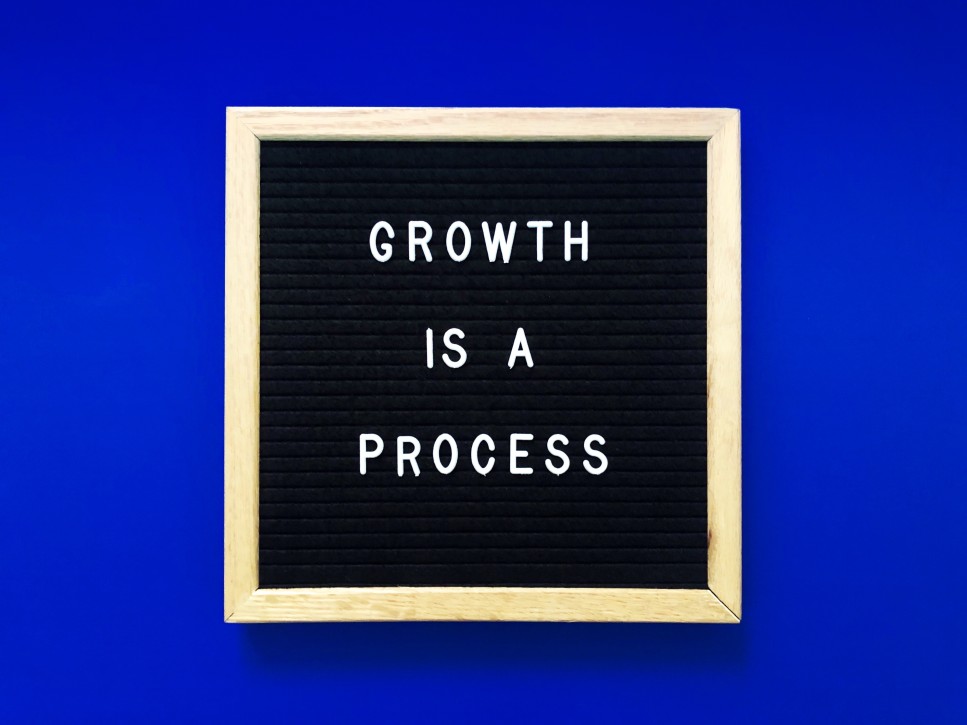Businesses today generate massive amounts of data daily, but few can fully use it. To get the most out of this data, businesses need actionable intelligence – insights that can be turned into strategies and initiatives for improved performance. Actionable business intelligence provides a competitive advantage that can be used to drive business outcomes such as increased revenue, lower costs, improved efficiency, and enhanced customer experiences.
This article will explore how actionable intelligence helps organizations transform raw data into tangible business outcomes. We’ll examine how actionable intelligence is used, its key benefits, and the processes necessary to gain the most value from this powerful tool.
By understanding these concepts, businesses can leverage actionable intelligence to maximize their potential and fully utilize their data-driven resources.
What is Actionable Intelligence?
Actionable intelligence is converting raw data into meaningful insights and decisions that can be used to improve business performance. It involves taking large volumes of data from multiple sources, analyzing it to identify patterns and trends, and then using this information to make informed decisions about utilizing resources for maximum efficiency.
Actionable intelligence can provide data analysis that helps companies make better decisions by using data to guide the best course of action. With actionable intelligence, a company can see what might happen in the future and take steps to prevent it, or take advantage of opportunities. Usually, this process is done using sophisticated software that can quickly and accurately process large volumes of data.
This information that will give them a boost over their competition is considered actionable intelligence. This information must be gathered in a legal way, however, because certain methods of obtaining this information may be illegal or considered corporate espionage. Unlike Business Intelligence (BI), which just provides a faster assessment of the data, actionable intelligence takes the process step further. Actionable intelligence provides a thorough plan based on the previous experiences of an organization; this strategy yields the best probable results.
Actionable intelligence can provide valuable insights into market trends, customer behavior, and competitor performance. It can be used to make decisions about product launches or marketing campaigns or develop new strategies for the organization’s market performance.
Organizations can make decisions based on facts rather than assumptions by transforming raw data into actionable intelligence.
What are the Benefits of Actionable Intelligence?
Before we move forward and discuss the benefits of actionable intelligence, it is important to note that this process is not just about gathering data. It also involves interpreting and analyzing the meaning of the data to understand how the organization can best utilize it.
Cost Savings
Much of actionable intelligence in business and IT focuses on issues of money — whether finding new opportunities to generate revenue or forestalling failures and extending system lifecycles to realize cost savings for the enterprise. Despite the benefits, there are several disadvantages organizations must consider before and during adoption of actionable intelligence practices, including the following: Investment. Actionable intelligence isn’t free.
Improved Decision Making & Efficiency
Actionable intelligence enables managers to make more informed decisions by providing timely and accurate insights. With the right data, organizations can accurately interpret their situation and better forecast potential changes. This allows them to respond quickly to new developments and plan accordingly. Additionally, actionable intelligence can help organizations eliminate guesswork when making business decisions by eliminating risk and reducing uncertainty.
By leveraging actionable intelligence, organizations can identify potential opportunities that would have been overlooked. This enables them to make informed decisions based on data-backed insights rather than assumptions or hunches.
Regardless of the industry or situation, all actionable intelligence can lead to better decision-making; this lets systems and human users make more accurate and timely decisions that can improve performance and outcomes. The concept of actionable intelligence, or actionable information, applies to many different industries, including the following: IT. Actionable intelligence can be the result of a data analysis — such as a log analysis — that reveals potential systemic hardware or software issues, which reactively need, or proactively might need, remediation.
Actionable intelligence helps with real-time analysis as well as the future planning of an organization and can improve an organization’s market performance. Unlike Business Intelligence, which provides a quicker evaluation of the data, actionable intelligence takes the procedure a step further. It gives a precise strategy based on the earlier experiences of an organization; this approach produces the best possible results.
Furthermore, quickly accessing and interpreting relevant data can help managers make faster and better decisions when responding to unexpected events such as market shifts or competitive changes. Actionable intelligence can also help organizations become more efficient in operating. Businesses can identify inefficiencies and develop strategies to address them by providing a comprehensive view of their operations.
Additionally, actionable intelligence enables companies to understand where their resources are being allocated and whether or not they are being used effectively. This ensures that the right decisions are being made and resources are going towards areas that will benefit the organization the most.
Furthermore, actionable intelligence can help streamline processes by providing insights and context into how tasks should be completed to optimize results. Automated reporting based on actionable intelligence can also reduce manual effort, freeing employees’ time and energy for more important tasks. By leveraging actionable intelligence, organizations can drive greater efficiency across their operations and ensure that every resource is utilized to its fullest potential.
Want to leverage your data and achieve your goals faster with actionable intelligence?
Contact Growth Hackers
Improved Customer Experience
By incorporating actionable intelligence into their customer journey models, businesses can gain valuable insights into customer preferences and behaviors. This data can then be used to personalize marketing messages and offers, helping to engage customers more effectively. Actionable intelligence also helps organizations understand how their products and services are being used, allowing them to better tailor their offerings to meet the needs of their customers. By leveraging this intelligence, companies can improve the overall customer experience by delivering relevant and engaging content.
Furthermore, actionable intelligence allows organizations to identify potential problems quickly and take steps to address them before they become issues for customers. This ensures that customers are getting the best possible service from the organization.
Market Research and Competitor Analysis
When organizations gain their position in the market because of analysis done through actionable intelligence, then it is called competitive intelligence. Some examples of actionable intelligence include the competitor’s price range, target demographics, marketing budget, etc. Organizations can use actionable intelligence to enhance their market position by performing competitor analysis. Actionable intelligence is often done on Big Data, where there are large amounts of data.
When decision-making is done with this data, it produces very accurate results. Actionable intelligence aids in the future planning of an organization and can enhance an organization’s market performance. Examples include the competitors’ price range, marketing budget, target demographic, advertising campaign and strengths over a company’s own product. Overly aggressive attempts to gather intelligence from competitors may be illegal and constitute corporate espionage.” Now onto some of the other questions posited: Let’s get into the context of security.
This information that will give them a boost over their competition is considered actionable intelligence. This information must be gathered in a legal way, however, because certain methods of obtaining this information may be illegal or considered corporate espionage.
How to Leverage Actionable Intelligence?
Organizations must develop a comprehensive data optimization strategy to successfully leverage actionable intelligence. This should include analyzing the organization’s current data sources and assessing what new sources may be necessary for gathering relevant insights.
Additionally, businesses should determine if existing processes or systems must be updated to support their data needs and future planning.
Once the necessary data has been identified, businesses can develop actionable intelligence solutions that will enable them to effectively analyze and interpret the information gathered. This could involve investing in advanced analytics tools such as machine learning algorithms or natural language processing software.
Additionally, organizations should consider leveraging existing technologies, such as predictive analytics or artificial intelligence (AI) solutions, to uncover deeper insights from the data.
The next step is to develop a plan for how the actionable intelligence will be used within the organization. This should include an understanding of what metrics are required to measure success and a strategy for how the insights gained from competitive intelligence analysis will be implemented into business processes.
Additionally, organizations must consider who is responsible for managing and monitoring any changes made due to incorporating actionable intelligence into their operations.
Also, businesses must ensure that they have adequate systems to monitor their progress and keep track of their performance against established goals. This could involve automating data-collection processes or using dashboards to visualize changes over time.
Organizations should also continually refine and enhance their methods to get more value out of their data and ensure that they can make the most out of their actionable intelligence initiatives.
When executed properly, leveraging actionable intelligence can help businesses gain a competitive edge in the marketplace and ultimately drive better business outcomes.
By taking the time to develop an effective data strategy and utilizing advanced analytics tools, organizations will be well-equipped to turn large amounts of raw data into meaningful insights that can be used to make informed decisions and optimize operations.
Ultimately, actionable intelligence is essential for any organization seeking to stay ahead of the competition.
What are the Key Considerations for Implementing Actionable Intelligence?
When implementing Actionable Intelligence, there are, of course, several key considerations to take into account.
Big Data
Actionable Intelligence is powered by data. Accurate, up-to-date data must be sourced from reliable sources and regularly updated to provide meaningful insights. Data can come from internal systems, such as Customer Relationship Management (CRM) and Enterprise Resource Planning (ERP), or external sources, like market research firms or third-party providers. It is also important to consider how data should be stored, secured, and backed up to ensure its integrity and availability for analysis.
Organizations can use actionable intelligence to enhance their market position by performing competitor analysis. Actionable intelligence is often done on big data, where there are large amounts of data. When decision-making is done with this data, it produces very accurate results. Actionable intelligence aids in the future planning of an organization and can enhance an organization’s market performance.
Infrastructure
To make the most of Actionable Intelligence, it is essential to have the right infrastructure in place. This includes hardware and software components necessary for data storage and analytics processing.
A robust platform should support advanced analytics capabilities such as predictive modeling, machine learning algorithms, and real-time insights into customer behavior or market trends. It is also necessary to consider scalability, as the data and insights provided by Actionable Intelligence should be able to grow with a business over time.
Talent
Finding and training the right people is essential when implementing Actionable Intelligence. This includes hiring data scientists and analysts who understand complex analytics techniques and can interpret or present results meaningfully. The considered actionable intelligence insights should be translated into decisions and strategies that the business can implement effectively.
Transform your business today with the right information at your fingertips!
Processes
Having the right processes in place is also important. These should include a documented plan for data sourcing, collecting, analyzing, and interpreting data and strategies for implementing actionable intelligence within an organization. This could involve formalizing training programs and developing metrics to measure success. It is also essential to ensure that all stakeholders understand their roles and responsibilities and know the potential risks of using actionable intelligence.
A company could gather data on sales of their product in stores versus the sales of other leading products and find out where they need to advertise more and where they should place more products. This information that will give them a boost over their competition is considered actionable intelligence. This information must be gathered in a legal way, however, because certain methods of obtaining this information may be illegal or considered corporate espionage.
So, as businesses look to actionable intelligence to gain insights and make better decisions, these key considerations are essential for ensuring the initiative’s success.
Examples of Companies Succeeding with Actionable Intelligence
Amazon is a prime example of how Actionable Intelligence can drive success. Amazon has identified customers’ needs and desires faster than ever using machine learning algorithms.
This has enabled them to deliver personalized product recommendations, discounts, and promotions that drive increased sales. Amazon’s use of analytics has also helped them identify potential fraudulent activity on their website, preventing associated losses.
Microsoft is another company that has seen significant success due to Actionable Intelligence. By using advanced analytics techniques such as natural language processing, Microsoft has increased its customer satisfaction scores and reduced customer churn.
Additionally, unlike business intelligence, Microsoft’s use of predictive analytics has allowed them to quickly identify new trends in customer behavior and respond accordingly.
Walmart is yet another company that has significantly improved its bottom line due to Actionable Intelligence. Through the use of big data analytics, Walmart has been able to optimize its supply chain operations.
This has allowed them to identify the most profitable items and have them shipped directly to stores, boosting their sales and reducing costs associated with inventory management. Walmart’s analytics capabilities have also enabled them to adjust prices dynamically to maximize profits.
The examples of Amazon, Microsoft, and Walmart demonstrate how Actionable Intelligence can drive positive business outcomes. By leveraging the power of big data, these organizations have gained a competitive advantage and grown their bottom line.
Final Words on Actionable Intelligence
In conclusion, understanding why actionable intelligence matters are crucial for success because actionable intelligence takes off in today’s fast-paced environment. It allows businesses to act on data-driven insights quickly and accurately, allowing for greater efficiency and improved business outcomes. The data collected and analyzed through Actionable Intelligence can be used to identify customer needs, optimize supply chains, and even detect potential fraud.
By investing in the right people and tools, companies can use Actionable Intelligence to gain a competitive edge and achieve greater success. With its ability to help businesses make informed decisions and drive growth, Actionable Intelligence is an essential tool for modern businesses.
Growth Hackers offers world-class data analytics services helping businesses from all over the world grow. There is no fluff with Growth Hackers. We help entrepreneurs and business owners implement actionable intelligence, increase their productivity, generate qualified leads, optimize their conversion rate, gather and analyze data analytics, acquire and retain users and increase sales. We go further than brand awareness and exposure. We make sure that the strategies we implement move the needle so your business grow, strive and succeed. If you too want your business to reach new heights, contact Growth Hackers today so we can discuss about your brand and create a custom growth plan for you. You’re just one click away to skyrocket your business.








